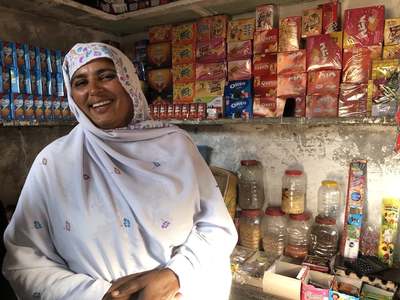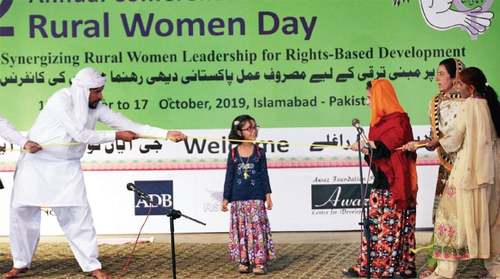Development experts stressed on Tuesday that increasing access to land, and eliminating discriminatory practices and customs that prevent women from acquiring property are crucial for empowering Pakistan's rural women.
According to a press release, the speakers expressed these views at an event organised by the United Nations (UN) Food and Agriculture Organisation (FAO) and the International Labour Organisation, in connection with International Women's Day.
The experts also suggested implementing the Women’s Property Act 2019 to ensure that rural women are not left behind.
During the two panel discussions, participants discussed existing policies and a framework for safeguarding the rights of rural working women.
Moderating the panel discussion, FAO Country Representative Mina Dowlatchahi said: "Women are not paid equally [as compared to] their male counterparts. Despite steady progress in representation, women are still not present in equal numbers in business or politics, and globally women's education, health and the violence against is worse than that of men."
She added that Pakistan currently ranks 152 on the Human Development Index out of a total of 189 countries, almost at the bottom of 37 nations categorised by medium human development and just a notch away from the group with low human development.
Meanwhile, Younas Khalid, senior gender advisor to UN Women Pakistan, said: “We cannot claim to be on the road to advancing gender equality if we do not promote rural women’s participation in decision-making and involve them in the design, development, implementation, monitoring, and evaluation of all relevant policies and strategies with focus on climate change.”
He maintained that rural women face limited access to financial services, health and basic services. "We must strengthen rural women’s access to health and other basic services, including education,” he added.
He also suggested the introduction of technology for easing domestic burden, and improving agricultural work through tools and equipment in order to support rural women.
According to the press release, out of Pakistan’s 132 million rural population, 65 million are women.

![Women are not paid equally [as compared to] their male counterparts, said FAO Country Representative Mina Dowlatchahi. — AFP/File Women are not paid equally [as compared to] their male counterparts, said FAO Country Representative Mina Dowlatchahi. — AFP/File](https://i.dawn.com/primary/2020/03/5e6795a62467d.jpg)














































